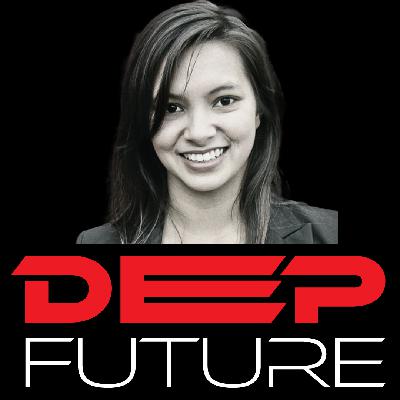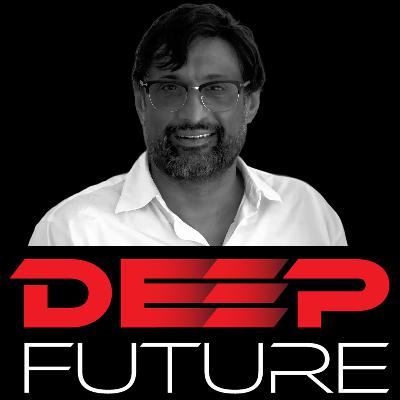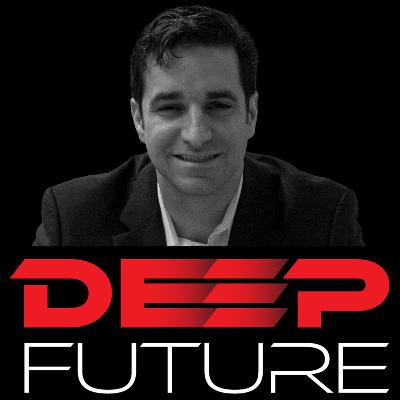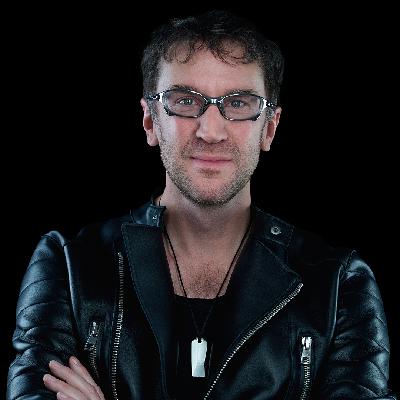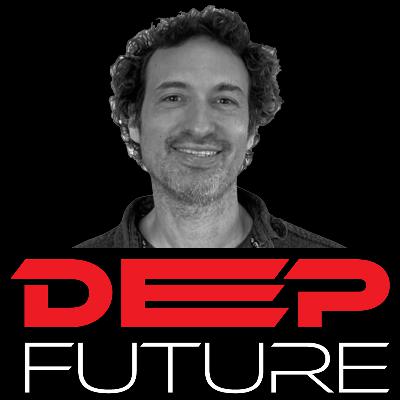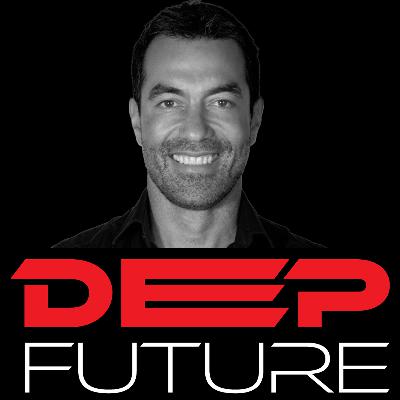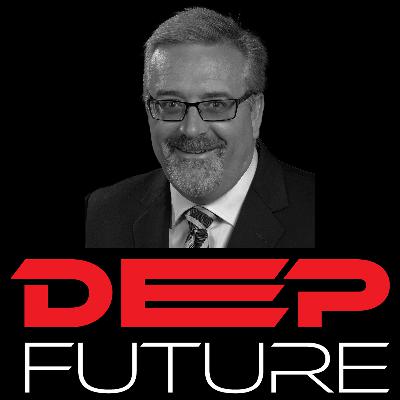Into the World of Genomics & Entrepreneurship — Adina Mangubat
Description
Today we get to hang out with Adina Mangubat, a friend of mine that I know from a salsa dancing, and also hanging out with computer hackers. She’s probably the youngest founder that I know. And she’s been running her company for almost a decade since starting it in college at age 22 called Spiral Genetics.
It could be considered probably the most advanced bioinformatics technology for population genomics. And what that means is DNA sequencing, massive populations, hundreds of thousands of people, if you can, and then correlating that data to see what can be learned about it. And it’s a huge frontier there’s so much that can be learned from doing this kind of work.
And Adina is really at the forefront of that. And so it’s a really fascinating conversation where she breaks down all that stuff: What it means, what DNA sequencing is about, the potential for bioinformatics, the potential for population genomics etc. So, this is the perfect episode for you. If you don’t know anything about it, because I’m asking Adina, a lots of dumb questions, you’re going to love it.
She’s also a super entrepreneurial and hustler which is very inspiring. Adina has built this company. She actually sold it to a large biotech company and then spun it back out on. And so she’s been through a lot as an entrepreneur and we’d talk about that a bunch.
And the other thing about Adina that’s super interesting to me is that she’s really committed to figuring out how you can create these transparent, high integrity, mission driven cultures in startups and small companies, and that’s pioneering work. It is really important and difficult work.
It’s unproven. We don’t know if it’s even going to work, but it’s so necessary to figure out how we make better companies. Some people have to be the ones to try that. And so we talk about that and I think there’s a lot to learn at the end of this episode. Adina and I talk a little bit about adoption and parenting and I am kind of deep into that, having adopted a child and raised her to age 14, so far seemingly successfully. Adina is kind of early in that cycle. And so if you’re interested in that sort of thing at the end, there’s a conversation about that. I hope you guys liked this episode and get a lot out of it.
Pablos: You seem to be possibly the youngest Founder/CEO that I know. I know other people who are young. You might not be the youngest now, but when you started, you were the youngest.
Adina: 22? I know some people that are younger.
It’s not common. I know people who started younger but they did not succeed at keeping it going for very long. You started at 22 and you’re still at it, which means you’re tenacious.
Maybe also stupid or crazy or all three.
I’m curious about that. First, I want to know how that happened for you. I don’t know if the track you’re on now is what you had planned. When you were a child, were your parents trying to convince you to be an entrepreneur?
No, definitely not. My family had planned on helping me out with grad school if I wanted to do that. I was like, “I don’t want to do that. I want to start this company instead.” My dad wrote me a tiny check and he slid it across the table. He’s like, “This is going to be the hardest and most educational year of your life.” I was like, “Really?” He was like, “Yes.” My mom was supportive but worried. She would call me every couple of weeks and be like, “How’s it going? Are you thinking about applying for a normal job?” After a while, she figured out this was clearly not a phase and that I was going to be okay.
I gathered later that the reason why she kept on asking is because she had started a company when she was young. She ran up a CPR business, a training business, and trained a bunch of the Secret Service. Back then, she had connections and you could roll up to the White House at midnight and be like, “Can I get a tour?” They would be like, “Yes.” She’d had to go through the entire process of starting a company back then. She knew that it was going to be hard.
Were they right?
Yes, it’s hard.
Do you think that you believe them or you didn’t believe them?
I didn’t. The blessing and the curse of being a newbie is that you’re so naive that you don’t know what you don’t know. If I knew everything that I know now if I were given the option of starting this particular company, I don’t know. I wonder about if I move on to another company someday…
If you’d have the guts to take it on?
It’s a big one. I’m clear that I have a reasonable business acumen. There are a lot of other companies that I could start that would be easy by comparison like stuff that is not this complicated. I have fantasies about easy companies. The reality is that I get bored after running a festival earrings company or something like that. That’s an idea that has been sitting around for a long time.
One of the things that’s missing in our vernacular is a way of describing the difference between entrepreneurship and tech entrepreneurship because you could start a Taco Wagon or a festival earrings company or something that will be entrepreneurship but it’s something that’s been done before.
There might even be more fine-grain definitions because I think that we have something to describe that there are “lifestyle businesses,” which is the Taco Wagon or the festival earrings company or whatever where the intention is to build a company that is going to feed your lifestyle and be fun generally. There’s then tech entrepreneurship, and it’s tech entrepreneurship of stuff that is hard but not bonkers hard. If you want to make enterprise software or a Fitbit device but for your animals or your pets, things like that. Things where you’re basically you’re taking off the shelf technology and you’re retooling it to a particular vertical or something. You’re doing some innovation but it’s not hard and never ever been seen before innovation.
I call the hard stuff deep tech now. All that other stuff, I call it shallow tech. If it’s iPhone apps or enterprise software or modified Fitbit’s, shallow tech. I don’t know if that’s going to stick but that’s how I’m thinking about it.
It’s unlikely because a lot of people feel like, “My tech isn’t shallow.”
It’s revolutionary and it’s sprinkled with blockchain. You went to college and you finished college.
It’s nothing related to this. I got my degree in Psychology with a focus on Bio Psych.
Do you feel like you know about the brains of people?
I do. At the time people were like, “What on earth are you going to do with that?” It turns out that a lot of things in life have a lot to do with humans that have brains. Understanding how humans work and how they tick and all of that stuff is ridiculously useful.
That’s why I like computers. I just reboot them if things go wrong. They mystify me. You finished college for your parents. Was that here?
Yes, at UDub.
The plan was like, “I’ve got to find something to do and I don’t want a job.” How did you end up deciding to start a company?
I’d been involved in two companies while I was in college as an intern. One was a smart grid company that was looking at like, “How can you optimize the usage of energy that come from green sources like wind energy.” Essentially, it was how can we use big buildings as batteries? If you know that the wind energy is spiking at a particular moment, you can overheat or over-cool your building a little bit. If it’s a large enough building so you can use that.
Did it seem it would work?
It seemed it would work. They had a good run but didn’t end up making it in the end. It turns out that the tech for building control is ancient and terrible. When you’re trying to integrate with that, that’s more complicated and there were a variety of reasons. I was involved in that company. I did a bunch of marketing related stuff for them, initial business strategy sales.
How big was the company at the time?
Seven people, maybe.
The curse of being a newbie is that you're so naive that you don't know what you don't know.
Share on X
That’s cool though, as an internship, especially because you get to see pretty much every part of the company. If you go be an intern at Microsoft, you get to see one dime and you don’t get to see the whole operation.
You learn about management, what works, what doesn’t work and all of those pieces. I was involved in that company and before that, my first job was an internship with a company that did home automation. Turning your lights on and off with a control panel. This is before cell phones. They were in direct competition with Control4. They did pretty well up until the housing crash. Nobody was looking to outfit their homes with cool smart techs.
<str

